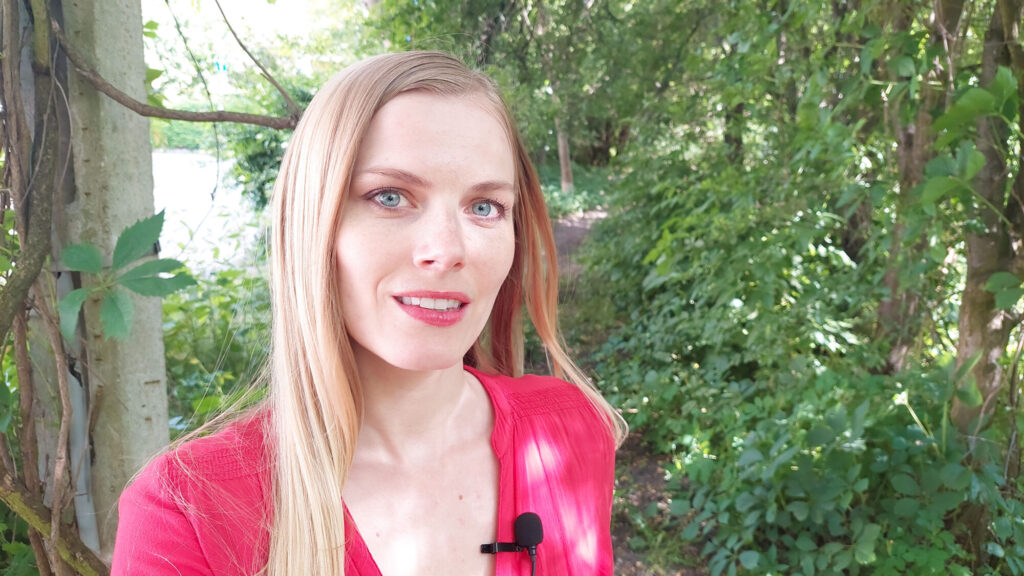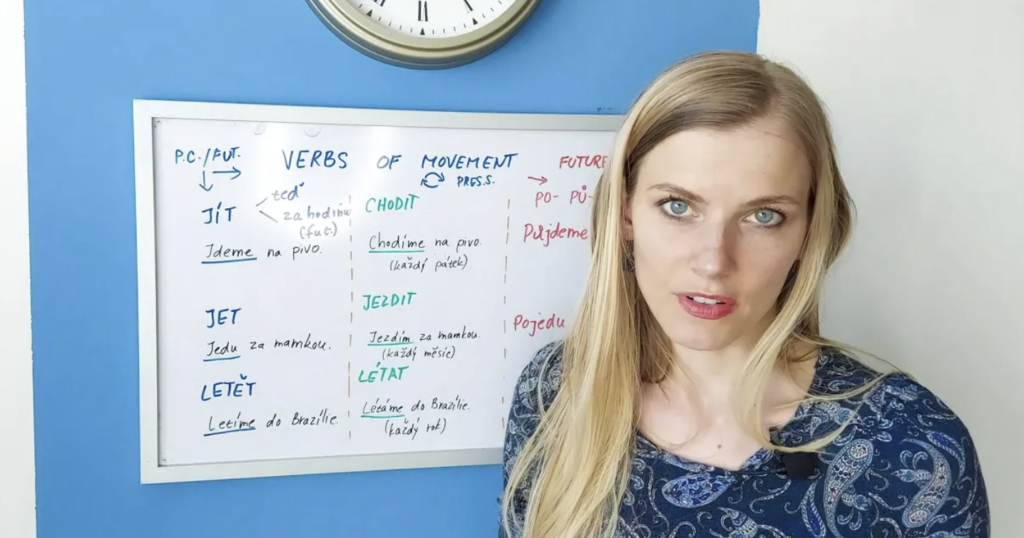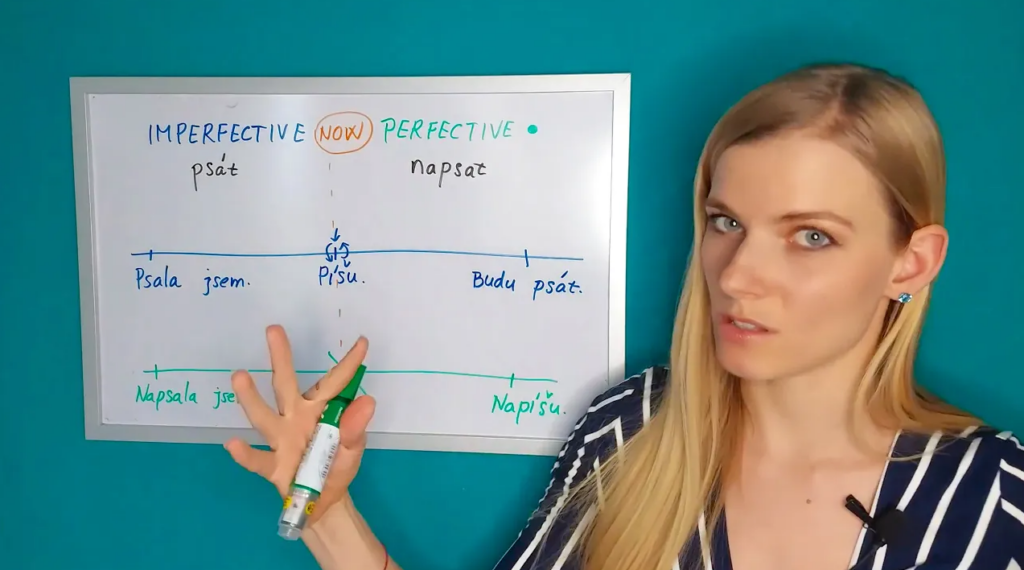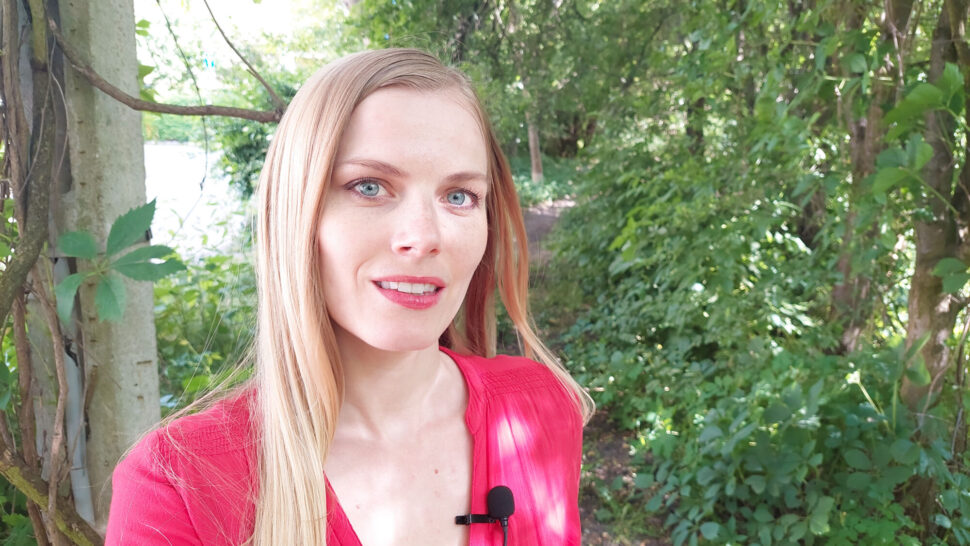
Talking about the Future
One of my subscribers once asked how we can express plans in the future in Czech. Here are my answers!
You can also watch a video where I explain this topic:
The first option that comes to mind about talking about the future is actually using the future tense. For that, we have two possibilities:
1. Future tense with be + infinitive (imperfective verb)
Co budeš dělat o víkendu? – What will you do / be doing at the weekend?
Příští týden budu doma. – I’ll be home next week.
Budu se celý víkend učit. – I will study all weekend.
Budeme na tebe čekat před nádražím. – We will wait (be waiting) for you in front of the station.
Notice the structure of those sentences:
The verb to be in the future + infinitive of an imperfective verb
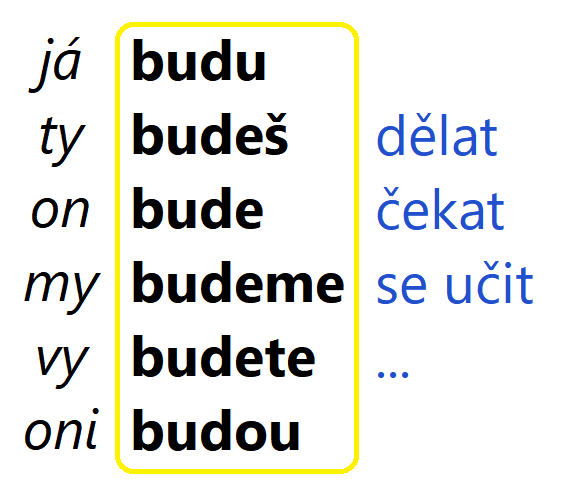
It is not possible to use a perfective verb with budu, budeš… For instance, budu počkat is incorrect.
Remember that if you want to say „will be“ in Czech, you only need to use the verb to be in the future and no other form.
– Budeš být o víkendu doma? – Will you be home at the weekend?
– Jo, budu doma. – Yeah, I’ll be home.
2. Future expressed with a perfective verb
Kam pojedeš na dovolenou? – Where are you going on holiday?
Poletíme do Turecka. – We will fly to Turkey.
Půjdeme do kina. – We will go to the cinema.
Víkend strávím u rodičů. – I will spend the weekend at my parents‘.
Pošlu ti to zítra. – I’ll send it to you tomorrow.
Some of the examples above contain motion verbs (jít – půjdeme, jet – pojedeš, letět – poletíme). Those verbs act in a different way than the rest of the verbs. If you would like to learn what to expect from them, check out these two videos – Part 1 and Part 2.
What is the difference between these two possibilities?
- budu + infinitive is usually focused on the process: Budu na tebe čekat. – I’ll be waiting for you (some time).
- future of a perfective verb is focused on the result: Počkám na tebe. – I’ll wait for you (Yes, I will wait for you).
It all depends on you – the speaker and which forms you want to use. The important thing is that you have to stick to the grammar rules. If you would like to understand better the topic of perfective and imperfective verbs, you can watch this video.
I also created worksheets in which you can learn and practice the most common perfective and imperfective verbs in Czech:
Imperfective Verbs and their Conjugation
Perfective Verbs and their Conjugation
Expressing your plans with other verbs
- chystat se + infinitive = to get ready to…
- plánovat + infinitive = to plan on…
We can use these verbs by themselves:
Už se chystám. – I’m getting ready now.
And often with an infinitive:
Už se chystám odejít. – I’m about to leave.
Chystám se ti to poslat. – I’m about to send it to you.
Chystáme se jet na dovolenou do Turecka. – We are going to go on vacation to Turkey.
Co plánuješ na víkend? – What are you planning for the weekend?
Co plánuješ dělat o víkendu? – What are you planning to do at the weekend?
Using present tense for future plans
When you are certain that something is going to happen, you can also use the present tense to express your plans.
Co děláš o víkendu? – What are you doing this weekend?
Zítra jedeme na výlet. – We are going on a trip tomorrow.
Příští týden končím v práci pozdě. – I finish work late next week.
V létě letíme do Turecka. – We are flying to Turkey in the summer.
So, how do I know when to use which form?
There are no strict rules as to which option to choose. It all depends on how we want to say things. You can say the same idea in different ways:
V pět hodin budu odcházet. – I will be leaving at five o’clock.
V pět hodin odcházím. – I’m leaving at five o’clock. (done deal)
V pět hodin odejdu. – I’ll leave at five o’clock. (less certain)
Plánuju odejít v pět hodin. – I plan to leave at five o’clock.
Chystám se odejít v pět hodin. – I’m going to leave at five o’clock.
Chystám se odcházet v pět hodin. – I’m going to leave at five o’clock. (This phrase sounds as if my leaving is going to take some time, maybe I need to take care of several things as I’m leaving, or I am not so strict about leaving exactly at five).
Phone conversation:
Let’s read an informal telephone conversation between two friends. Notice how the future is expressed here:
Ahoj, neruším? Hello, I hope not disturbing you.
Ne, ne, povídej. No, tell me.
Hele, co děláš o víkendu? So, what are you doing on the weekend?
Pojedeme na výlet. We are going on a trip.
Jéé, a kam se chystáte? Oh, and where are you planning to go?
Na Karlštejn, a tak kolem. To the Karlštejn castle and around.
Tak tam to budete mít hezký! No já v sobotu plánuju malou grilovačku a chtěla jsem vás pozvat.
You will have a nice time there! Well, I’m planning a small barbecue on Saturday and I wanted to invite you.
To je škoda, my už ten výlet plánujeme dlouho. That’s a shame, we’ve been planning this trip for a long time.
No nevadí. A ten víkend potom? Never mind. And the weekend after?
Zatím nic, můžeme přijet! Nothing yet, we can come!
Tak super! Budete moct v sobotu odpoledne? OK great! Will Saturday afternoon be ok for you?
Asi jo, ale ještě ti to potvrdím. I guess so, but I’ll confirm it with you, ok?
Jo, bezva, tak jo, děkuju. Čau čau. Great, ok, thank you! Bye bye.
Tak čau! Bye!

